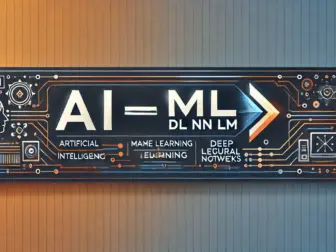Tag - Machine Learning
Blog, Edge Computing and Data Analytics , March 12, 2025 , AI Applications, Cloud-Edge Collaboration, Data Security, Edge Computing, iot, Machine Learning, Real-Time AI
AI and Machine Learning, Blog , December 27, 2024 , AI Model Architecture, Artificial Intelligence, Deep Learning, large models, Machine Learning, Neural Networks
AI and Machine Learning, Blog , December 23, 2024 , AI, automation management, Edge Computing, iot, Machine Learning, Predictive Maintenance, smart maintenance
Blog, Industrial Solutions , November 27, 2024 , Advanced IoT devices, Edge AI, Edge Computing, IoT kiosks, Machine Learning, self-service machines, Smart retail solutions
Blog , May 29, 2024 , Computer Vision, Keras, Machine Learning, Model Training, OpenCV, OpenMV, PyTorch, TensorFlow, Tool Comparison
Blog , May 29, 2024 , Computer Vision, Embedded Applications, Keras, Machine Learning, Model Training, OpenCV, OpenMV, PyTorch, Real-Time Object Detection, TensorFlow
- 1
- 2
Exploring the Power of Machine Learning
Exploring the Power of Machine Learning
Machine learning is a revolutionary technology that has transformed various industries by enabling computers to learn from data without being explicitly programmed. This cutting-edge field of artificial intelligence allows systems to automatically improve their performance over time through experience.
One of the key advantages of machine learning is its ability to analyze large volumes of data quickly and accurately, leading to faster and more effective decision-making processes. This has profound implications for businesses looking to gain a competitive edge, as it allows them to uncover valuable insights and patterns that were previously inaccessible.
There are several types of machine learning algorithms, with supervised learning, unsupervised learning, and reinforcement learning being the most common. In supervised learning, the algorithm is trained on labeled data to make predictions or decisions. Unsupervised learning, on the other hand, involves finding hidden patterns or structures in unlabeled data. Reinforcement learning is a type of machine learning where an agent learns how to behave in an environment by performing actions and receiving rewards or penalties.
Machine learning has a wide range of applications across different industries, including healthcare, finance, marketing, and transportation. In healthcare, machine learning algorithms can be used to analyze medical images, predict patient outcomes, and personalize treatment plans. In finance, these algorithms are employed for fraud detection, credit scoring, and algorithmic trading. In marketing, machine learning helps businesses better understand customer behavior, optimize advertising campaigns, and personalize recommendations. In transportation, it is used for route optimization, predictive maintenance, and autonomous driving.
Despite its numerous benefits, machine learning also faces several challenges, such as data quality issues, lack of interpretability, and ethical concerns related to bias and fairness. Ensuring the reliability and fairness of machine learning models is crucial to prevent unintended consequences and ensure ethical decision-making.
As the field of machine learning continues to evolve, researchers are exploring new techniques and approaches to improve the performance and interpretability of algorithms. Deep learning, a subset of machine learning, has gained significant attention in recent years due to its ability to automatically learn representations from data using artificial neural networks. This has led to breakthroughs in image recognition, natural language processing, and speech recognition, among others.
In conclusion, machine learning is a powerful technology that has the potential to revolutionize how we work, live, and interact with the world around us. By leveraging the insights and predictions generated by machine learning algorithms, businesses can drive innovation, enhance decision-making, and create value for their customers. As we continue to push the boundaries of what is possible with machine learning, it is essential to prioritize ethics, fairness, and transparency to build trust and confidence in these intelligent systems.







